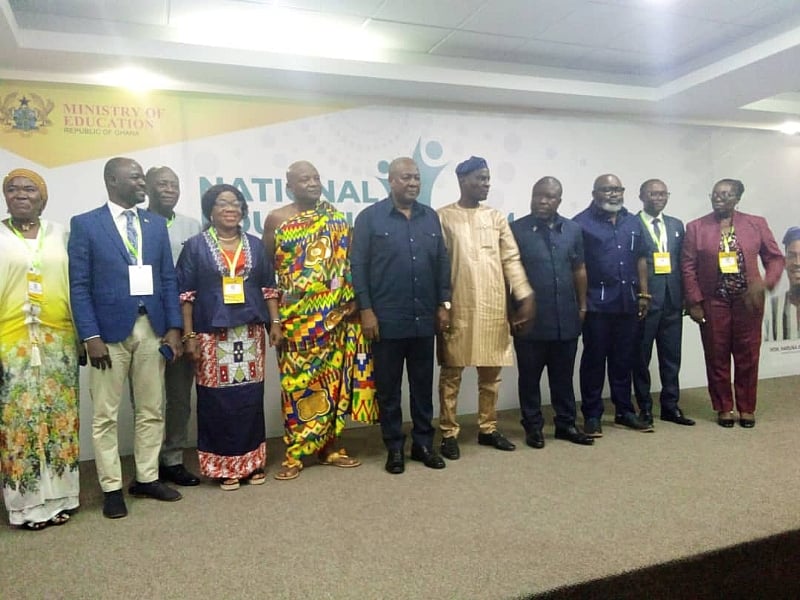Professor Joseph Seyram Agbenyegah, an international education expert, has emphasized the need for Ghana to adopt a structured ideological approach to education, similar to what exists in developed countries such as Finland, Singapore, and Malaysia.
He argued that these nations have built sustained education systems rooted in a clear ideological framework, which has significantly contributed to their socio-economic development.
Speaking at the National Education Forum (NEF) in Ho, Prof. Agbenyegah stressed that Ghana must establish a national education system that provides a clear direction for the development of children, ensuring that learning is anchored in core national values. He highlighted that curriculum redevelopment should introduce flexibility while incorporating a National Competency Framework to drive progress.
According to him, the key to transforming education lies in fostering a mindset that encourages curiosity, confidence, critical thinking, and collaboration. He noted that the launch of the NEF presents a unique opportunity to redefine the nation’s educational goals, with the potential to shape a future where education empowers individuals, answers fundamental questions, and integrates essential knowledge, skills, values, attitudes, and behaviors necessary for sustainable development.
Expounding on the role of values in education, he stated that knowledge must go beyond academic learning to include a deep understanding of sustainable development, its goals, and the interconnectedness of social, economic, and environmental systems. He cautioned that without strong ethical values, true educational transformation would not be possible. Ethics, he explained, should guide students toward responsibility, respect, and care for both society and the environment.
Prof. Agbenyegah also proposed a three-tier financing system for education, where the affluent would bear the full cost of their education, middle-income earners would contribute a portion, and those from lower-income backgrounds would receive free education. He argued that such a system would ensure long-term sustainability, preventing the current model from becoming overburdened. He noted that in Ghana, the notion of free education often leads to an unsustainable surge in student numbers, placing excessive financial pressure on the government.
He underscored the importance of fostering a cultural shift toward collective aspirations, rather than relying solely on individual motivation. He pointed out that Ghana’s primary challenge in education is not financial but attitudinal, and he urged stakeholders to work toward changing mindsets to achieve meaningful progress.
“Education must nurture ethical and culturally responsive citizens while integrating cutting-edge technology to promote both excellence and equity,” he stated. He further encouraged Ghanaians to embrace ambitious thinking, adding, “We must dare to dream—dream big for education and for Ghana.”
Supporting his views, Prof. Kwame Acheampong, an international education development consultant, stressed the importance of prioritizing marginalized groups to widen the nation’s talent pool. He warned that any educational system that fails to include all citizens does not truly promote development. He urged Ghana to learn from global best practices and ensure that reforms are driven by data and evidence-based results. He called for practical implementation strategies that maximize stakeholder involvement, enhance capacity, and utilize both medium- and long-term policy frameworks.
Togbe Afede, Agbogbomefia of Asogli, who chaired the Forum, commended President John Mahama for delivering on his campaign promises by initiating the National Education Forum. He acknowledged the significance of the event in shaping Ghana’s education system for a sustainable future.


